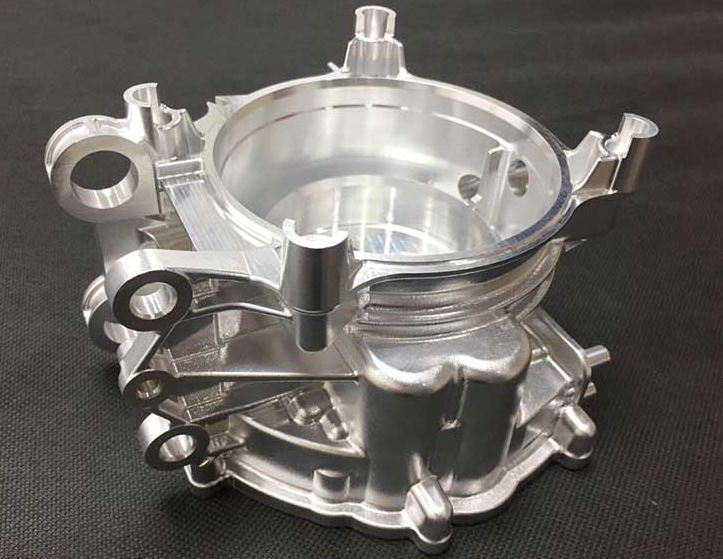The Ultimate Guide To Stahl Specialty Company
The Ultimate Guide To Stahl Specialty Company
Blog Article
Not known Facts About Stahl Specialty Company
Table of ContentsThe Stahl Specialty Company IdeasThe Single Strategy To Use For Stahl Specialty CompanyStahl Specialty Company Fundamentals ExplainedThe Definitive Guide to Stahl Specialty CompanyExcitement About Stahl Specialty Company
The subtle distinction hinges on the chemical content. Chemical Comparison of Cast Light weight aluminum Alloys Silicon advertises castability by decreasing the alloy's melting temperature level and improving fluidness throughout spreading. It plays a vital role in permitting detailed mold and mildews to be loaded precisely. In addition, silicon adds to the alloy's toughness and use resistance, making it beneficial in applications where durability is critical, such as automobile components and engine elements.It likewise enhances the machinability of the alloy, making it easier to refine into finished items. This way, iron adds to the general workability of light weight aluminum alloys. Copper enhances electrical conductivity, making it advantageous in electric applications. It additionally enhances rust resistance and contributes to the alloy's overall strength.
Manganese adds to the strength of light weight aluminum alloys and boosts workability. It is typically utilized in functioned light weight aluminum products like sheets, extrusions, and profiles. The visibility of manganese aids in the alloy's formability and resistance to cracking during manufacture processes. Magnesium is a light-weight aspect that gives strength and effect resistance to light weight aluminum alloys.
It allows the manufacturing of lightweight components with superb mechanical homes. Zinc boosts the castability of light weight aluminum alloys and aids regulate the solidification process throughout casting. It enhances the alloy's toughness and solidity. It is often discovered in applications where elaborate shapes and great details are needed, such as attractive spreadings and particular automobile parts.
Getting My Stahl Specialty Company To Work
Because aluminum-silicon alloys have good spreading properties, high gas properties, basic procedures, and exceptional corrosion resistance, aluminum-silicon alloys are most commonly made use of in the die-casting market in the house and abroad. At the exact same time, aluminum-silicon alloys are additionally reasonably early and extensively identified alloys established and utilized in die-casting. After continuous research study and improvement, the majority of the current international mainstream aluminum-silicon alloys have actually been completed and are nothing more than A356, A360, A380, ADC12, B390, and A413.
The primary thermal conductivity, tensile stamina, yield toughness, and elongation vary. Select ideal basic materials according to the performance of the target item generated. Among the above alloys, A356 has the greatest thermal conductivity, and A380 and ADC12 have the cheapest. The tensile limit is the contrary. A360 has the very best yield strength and the greatest elongation rate.

An Unbiased View of Stahl Specialty Company
In accuracy spreading, 6063 is fit for applications where complex geometries and high-quality surface area coatings are paramount. Instances include telecommunication enclosures, where the alloy's remarkable formability enables his response for sleek and aesthetically pleasing styles while preserving structural stability. In the Lights Solutions industry, precision-cast 6063 parts create stylish and effective lighting components that need intricate shapes and good thermal efficiency.
(https://www.slideshare.net/franceshoward64061)
It causes a better surface finish and far better deterioration resistance in A360. Additionally, the A360 exhibits exceptional elongation, making it suitable for complicated and thin-walled parts. In accuracy spreading applications, A360 is appropriate for industries such as Consumer Electronics, Telecommunication, and Power Devices. Aluminum Castings. Its boosted fluidness enables intricate, high-precision parts like mobile phone coverings and interaction tool real estates.

In accuracy casting, light weight aluminum 413 radiates in the Customer Electronic Devices and Power Equipment sectors. This alloy's exceptional rust resistance makes it a superb option for exterior applications, ensuring durable, resilient products in the discussed markets.
The 7-Second Trick For Stahl Specialty Company
As soon as you have actually decided that the light weight aluminum pass away casting procedure is appropriate for your project, a crucial next action is making a decision on one of the most suitable alloy. The light weight aluminum alloy you pick will substantially affect both the spreading procedure and the properties of the end product. Because of this, you must make your decision thoroughly and take an informed approach.
Determining one of the most appropriate aluminum alloy for your application will certainly mean weighing a vast selection of characteristics. These relative alloy qualities follow the North American Pass Away Casting Association's standards, and we've divided them right into 2 classifications. Foundries in Missouri. The initial category addresses alloy characteristics that impact the manufacturing process. The 2nd covers features influencing the properties of the last product.
The alloy you select for die spreading straight affects several elements of the casting process, like just how simple the alloy is to deal with and if it is vulnerable to casting issues. Hot fracturing, likewise understood as solidification splitting, is a normal die casting problem for aluminum alloys that can lead to interior or surface-level splits or splits.
Getting The Stahl Specialty Company To Work
Certain light weight aluminum alloys are a lot more at risk to hot fracturing than others, and your selection should consider this. An additional typical problem located in the die spreading of light weight aluminum is pass away soldering, which is when the actors adheres to the die walls and makes ejection tough. It can harm both the cast and the die, so you must try to find alloys with high anti-soldering residential or commercial properties.
Corrosion resistance, which is already a remarkable characteristic of light weight aluminum, can differ considerably from alloy to alloy and is a vital characteristic to think about relying on the ecological problems your product will certainly be subjected to. Put on resistance is an additional property typically sought in aluminum items and can set apart some alloys.
Report this page